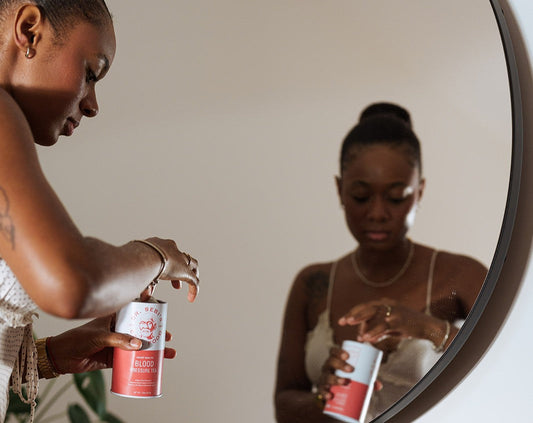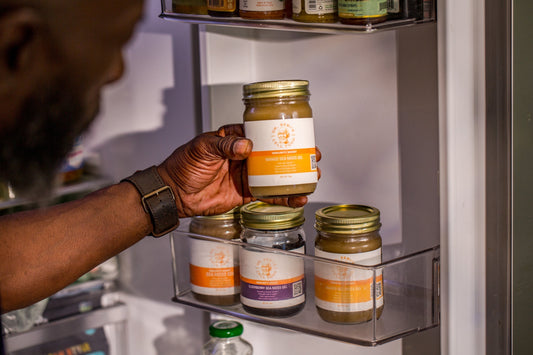Setting health goals is easy, but sticking with them is where the real challenge lies. Despite our best intentions, life gets in the way, and it’s easy to lose track of eating well, exercising, being more mindful, and the myriad of goals we set for ourselves.
So, it’s essential to remember that setbacks are a natural part of the process. The most important thing is to get back on track. Today we’ll explore some practical strategies on how to do just that.
Let’s drop the guilt, forgive yourself quickly, and reaffirm what you want and why! Are you ready to get back on track?
Plan for Potential Failures
A big reason people lose track of their health goals is because they don’t prepare for potential failures. It’s essential to identify what may cause you to falter, and plan accordingly. By being proactive and planning for problems, you can help reduce the risks of derailing your own progress.
Food Goals
Ask yourself some questions:
- When do you find it most difficult to stay on track?
- Do you tend to skip meals when you’re running late?
- Do you eat when you get sad?
- What is it that spoils your best intentions and what can you do about it?
- Do you need to make a habit of preparing your meals ahead of time, or keep healthy snacks on hand?
- Are you tempted by the bad foods in your cupboards, could you just throw them away?
- Is eating out the issue, or do you need to allow the occasional treat day?
Exercise Goals
If you struggle with exercising consistently, try scheduling your workouts at the same time each day, and make them a non-negotiable part of your routine. Keeping a weekly schedule can be an effective way to stay on track. By planning out your workouts, you can ensure there’s time for exercise in your busy schedule. This can also help you avoid the temptation to skip when you're feeling stressed or short on time.
Can you find some fun exercise to do when you are really not in the mood? What’s your backup plan for movement when you need mental motivation (have you ever tried jumping on a trampoline and it not being fun)? Could you call a friend and request a walk in the park?
Self-Care Goals
Even though it’s for our own benefit, we can have lots of resistance to taking care of ourselves. Scheduling self-care activities, like taking a luxurious bath, getting a massage, going for a walk in nature, reaching out to friends or family for a support chat, or meditation, takes away some of that resistance.
Having a plan provides motivation and gives you permission to be good to yourself. By consistently following a weekly schedule that prioritizes your health goals, you can establish healthy habits that last long-term. Having backup plans for when you really can’t stick to your goals keeps you in check with yourself, and it’s only you that you need to answer to!
Take Things One Day at a Time
When we set health goals, it’s easy to get caught up in the big picture and lose sight of the small steps that will get us there. While it’s necessary to keep our long-term goals in mind, focusing on them exclusively can be overwhelming. Instead, try breaking them down into smaller, more manageable goals, and take things one day at a time.
Food Goals
If your long-term goal is to lose weight, focus on making healthy food choices each day, rather than fixating on the number on the scale. If you’re still eating numerous unsupportive foods, rather than trying to give them all up at once, give one up each month.
Today you could stop eating bread or sugar, which given its addictive nature is already a huge achievement. Persist with this, noting your progress each day on a calendar or in a notebook, building up your confidence and self-belief that you can make progress, and notice the mental discipline it builds. When you feel you’ve got to grips with bread or sugar no longer being a part of your life, focus on the next harmful food you want to give up and take that process one day at a time.
Exercise Goals
Say you want to establish a habit of running 5km in one go, but you can only achieve a few hundred meters. Start where you’re at, then next week, add a little bit more onto your run. Each time you run, focus on running just a little bit further, maybe 100 meters or 200 meters. By building your stamina in hundred-meter increments, you’ll be reaching your goal sooner than you think. Walk-jog-walk-jog is an incredible way to build up progress. You can even start with ‘walk slow-walk faster as a training routine. We all need to start somewhere.
Self-Care Goals
Life gets in the way of life, and taking care of ourselves easily gets deprioritized. The thought of big shifts in how you treat yourself can be overwhelming (which is a common experience by the way, so you’re not alone.)
Caring more for ourselves often helps prevent us from turning to unhealthy temptations in the first place. Here are some examples divided into categories, how would you like to care more about yourself? These are powerful ways to both prevent and recover from setbacks!
- Emotional Self-Care: Write about your feelings, read a self-help book, listen to music, write a letter to yourself, make music or art, talk positively to yourself, journal, list favorite memories, and spend time in nature.
- Practical Self-Care: Clean your room, schedule appointments, hire a cleaner, write a shopping list, set some goals, replace or throw away broken items, sort through clothes, beautify your space.
- Physical Self-Care: Go for a walk, get a massage, stretch or do some yoga, have a nap, have a cup of tea, get a manicure, take a detox bath or visit a sauna, go swimming, enjoy some herbs, eat healthy foods, find a new sport to try, spend time outside, or try a new facial and body scrub.
- Mental Self-Care: Visit a local museum or art gallery, do a puzzle, play a game, write a poem or short story, start a new hobby, listen to new music, learn a new language, sign up for a course, do a DIY project, read a book, daydream, go to the library, listen to a podcast.
- Social Self-Care: Nurture a specific relationship, call your parents, walk with a friend, find a like-minded forum, check in on an old friend, write a letter to a friend, go to a community event, organize an event, host a gathering or dinner party, spend time with your pet, volunteer.
- Spiritual Self-Care: practice mindfulness, attend a place of worship, do some self-reflection, pray or meditate, do a good deed, look at the stars, light a candle, explore your purpose in life, listen to nature sounds, create a vision board, surround yourself with things that inspire and uplift you.
Like all habits, self-care is not a one-time event but an ongoing practice. By prioritizing more of these tiny steps you can gradually build up to more ambitious self-care goals.
Enlist Support of People and Tools
It’s hard to stick with health goals when we feel we’re doing it alone. Enlisting the support of the people around you - friends, family members, or a personal trainer, will keep you accountable and motivated.
There are loads of tools available to help you stay on track and enjoy working towards your goals:
Food Goal Tools
- Food tracking apps
- Calorie counting apps
- Meal plan apps
Exercise Goal Tools
- Exercise tracking apps
- Pedometers
- Stopwatch/smartwatch
Self-Care Goal Tools
- Meditation apps
- Binaural beats audios (for meditation)
- Manicure sets
- Self-massage tools
- Journal and stationery
Don’t be afraid to seek out the resources and support you need to reach your health goals!
You Never Fail if You Keep Going Again
Please remember: setbacks are a natural part of the process; you never fail so long as you keep going! Failure is when you give up. Don’t give up. Get back up.
Instead of beating yourself up over losing progress or getting distracted from working on your goals, use these temporary setbacks as an opportunity to learn and grow. You can simply see it as data to optimize your performance.
Reflect on what caused the setback and what you can do differently moving forward. Remember, every day is a new opportunity to get back on track and make progress toward your goals. Getting off track is part of the process (imagine you are wandering through the deep undergrowth of some unexplored jungle, or a city you have never been to before!) Simply stop. Look for the path. Check a map and then get back on track!
Setbacks don’t have to be permanent. By planning for potential failures, taking things one day at a time, enlisting the support of the people and tools available to you, and remembering that you never fail as long as you keep going, you will keep moving in the right direction.
If at first you don’t succeed, that’s a natural part of the process. So long as you keep getting up and trying again, you can never lose.



















































2 comments
I found this to be very helpful and will use this to reflect my own personal goals and experiences.
Ugh. This came at the rigjt time. Thank you so much. I just messed up the past 2 days.